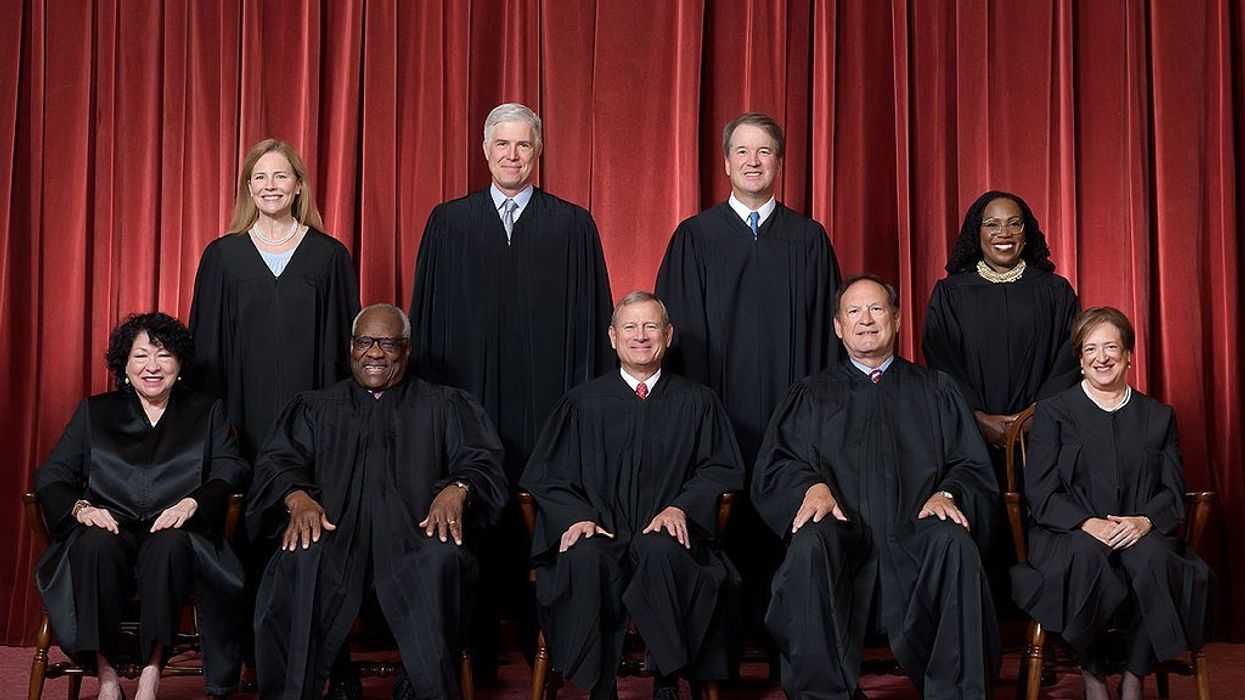How a 'bizarre' SCOTUS ruling could have 'potentially dire implications for democracy': legal experts


After the U.S. Supreme Court heard oral arguments in Trump v. Anderson on Thursday, February 8, some of MSNBC's legal analysts predicted that the justices would strike down a Colorado Supreme Court ruling that removes Donald Trump from the state's presidential ballot based on Section 3 of the U.S. Constitution's 14th Amendment.
Neal Katyal said, "This argument did not go well for the Trump challengers, and that's putting it mildly." And Joyce White Vance, a former federal prosecutor, said that the High Court might even be unanimous in reversing the Colorado decision and keeping Trump on the state's ballot.
Vance noted that even Justice Elena Kagan, a Barack Obama appointee, appeared to have major problems with the Colorado Supreme Court's reasoning.
In an article published by The Bulwark, law professor and former federal prosecutor Kimberly Wehle is also doubtful that the Colorado ruling will be upheld. And she is critical of the Roberts Court for not having more to say about the January 6, 2021 insurrection during February 8's oral arguments.
"Based on the oral argument before the Supreme Court today in Trump v. Anderson — the appeal of the Colorado Supreme Court's ruling that Donald Trump is ineligible for that state's presidential ballot for having engaged in insurrection — there seems to be no doubt that the High Court will overturn Colorado's decision," Wehle argues. "The violence and trauma of January 6th, not to mention its potentially dire implications for democracy moving forward, barely even came up during the two-hour hearing."
Wehle continues, "Justice Ketanji Brown Jackson did ask Trump's lawyer if January 6th was an insurrection, to which he answered no, it was a mere 'riot.' Meanwhile, Trump is sailing toward the Republican nomination for president, promising to convert the White House into a mechanism for personal political revenge. We should take him at his word."
The former federal prosecutor finds Justice Samuel Alito's questioning on February 8 to be especially "bizarre," as he seemed to imply "that the only way Section 3 could operate in the 2024 cycle is if Trump is on the ballot."
READ MORE: 'Inaccurate, gratuitous and wrong': White House responds to special counsel’s Biden report
"Holding office, suggested Alito, is different from running for office — so perhaps Section 3 can only stop you from being sworn in and holding an office, not from campaigning and getting elected," Wehle writes. "Under that logic, no state could invoke Section 3 in the run-up to any election. Never mind that states have kept folks out of state races numerous times before — including, most recently, a January 6th insurrectionist in New Mexico…. In other words, the Supreme Court may be toying with the notion that the only constitutional way to avoid another January 6th power-grab is for another January 6th to occur — this time with Congress wresting power from an insurrectionist who may have won the requisite 270 Electoral College votes legitimately."
Wehle adds, "Of course, that maneuver would virtually guarantee even more unprecedented chaos, violence, and civil unrest—precisely the opposite of what Section 3 was intended to accomplish.
READ MORE: Former Trump advisor Peter Navarro loses bid to stay out of prison during appeal
Kimberly Wehle's full article for The Bulwark is available at this link.